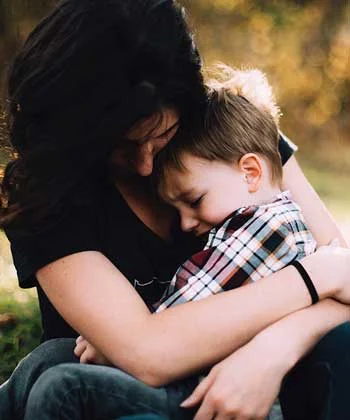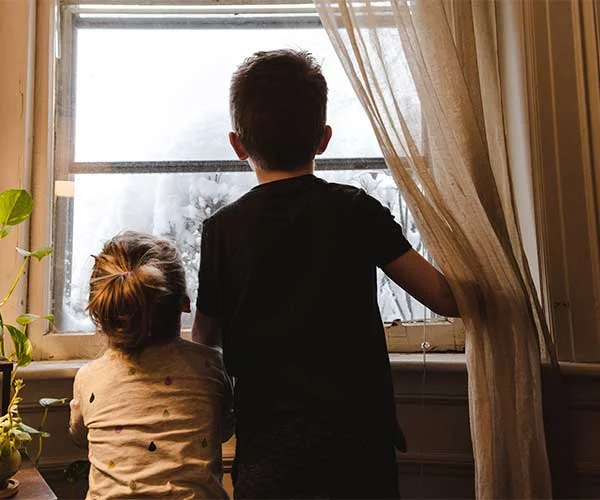
Children who are in foster care are usually removed from their parent’s responsibility because they abused and neglected, and for other reasons beyond their control. Several studies show evidence that abuse and neglect have an effect on a child’s behavior as well as on their mental state.
There’s no denying the fact that fostering a child is bound to impact your family, so be prepared to address certain behaviors and issues in your home and around your children.
Challenging Effects of Foster Care on Your Children
Cursing: If your family does not use or believe in the use of foul language in your homes, you may not be prepared at the level of swearing some foster children use daily – including very young children. Foul language can be particularly frustrating and embarrassing for conservative foster parents.
Action to Be Taken: Communication is critical in providing foster care. Discuss what words are considered appropriate and not appropriate. Some older children in your home may find little kids cursing amusing, so make sure to remind the older ones not to encourage the foul language by laughing. This can be another behavior you can choose not to permit in your foster home.
Dishonesty – Lying and Stealing: While the habit may be a challenge to parents, lying and stealing are often considered to be survival skills. Some children may have had to engage in such behaviors to survive the environments in their birth homes.
This can be confusing to the foster children, and they may have a hard time extinguishing the behavior. They will need to adopt new skills to replace this dishonest behavior. Your children will get exposed to these behaviors along the way, and they may even experience losing their possessions. Your children may begin to doubt and show distrust towards others.
Action to Be Taken: Talk to your children about the behavior, and how you expect them to deal with it. This can be another behavior that you choose not to tolerate in your foster home.
Safety: Some foster children may have violent outbursts or rage when angry, which will lead them to hit, bite, kick, and throw objects at others. When this happens, your child’s safety may be put at risk, or your child’s things may get broken.
Action to Be Taken: Involve your children in crafting a plan on what to do when this happens. Make it clear to your child that he needs to tell you immediately when this occurs. While you are dealing with the behavior, tell your child to go to his room or your room.
Sexualized Behavior: Some children who have experienced sexual abused may exhibit sexual behaviors. This behavior may range from minor sexual acts, knowledge about sex, to the major, sexual activity.
Action to Be Taken: Discuss with your foster care social worker your considerations about the behaviors you are willing to parent and not parent in your home. Remember that a child’s history may not be fully known before they are placed in a foster home.
Come up with plans to protect your children from sexual abuse. Encourage open communication with your children and discuss with them what is a good touch and a bad touch. Show them how to say “no”. Tell your child to immediately let you know if any incident occurs that makes her feel uncomfortable with a foster child.

Insecurity in the Home: Some children have some confusion about the concept of “permanency.” Your little ones may think time will come for their turn to go to their new family, and that children coming and going from home is normal.
Action to Be Taken: Tell your children the story of how you gave birth to them. Speak to them about the role of foster parents and how foster children are temporary for your home, but that they are permanent and forever.
Loss: It’s not unlikely that your children will become attached to the different foster children that enter your home. It may be difficult for them when the time comes to say goodbye.
Action to Be Taken: Depending on your children’s age, you can discuss with them about the transition process. Keep pictures of past foster children in your home. If possible and all involved parties agree, ask for continued contact with past children. Many children who have been a part of a fostering family have extended their definition of family and sibling.
Positive Effects of Foster Care on Your Children

While the information above may lead you to think twice about fostering, know that there are also several advantages of exposing your children to foster children.
-
By welcoming foster children into their homes, your kids learn how to serve others and the community.
-
Your kids will learn to share their toys, space, and the people they love.
-
Your kids will learn that there can be an extension of caring adults in one’s world, as they see foster children experience more care through their foster parents and other people in the foster parent’s circle.
-
Your kids will also gain a broader view of the world as they get exposed to different cultures, races, and family values. The exposure may not always be a good one, but there will be diverse opportunities for discussion and learning.
-
Your kids will also become more familiar with a broad range of emotions as they see foster children express themselves. Even if the feelings are not appropriately expressed, you will be there to explain to your child that there are better and healthier ways to express emotions.
-
Your kids will also learn a lot about grief and loss. When they see foster children deal with their losses, your child will learn how the other people’s losses impact them. They will also get to experience their own grief and loss when foster children come and go from their lives. However, this does not have to be negative.
-
Your kids will also learn to make choices and deal with consequences, and how these will impact the people around them.
Becoming a foster parent is a huge decision that will impact you, your children, home, extended family, friends, and community. Be clear about what you are willing to bring into your home and make sure to ask questions before agreeing to foster care. Foster care offers excellent rewards, especially if you know what to expect.
If you decide to foster a child, we at Courage Community Foster Care can assist you throughout the whole process. We are based in Colorado, USA, and we help facilitate foster care for children who have been taken from their parent’s responsibility due to neglect or abuse. We receive referrals of 5 to 20 children in need of placement daily, and we will appreciate your help in making a difference to these children’s life. Please give us a call at 719-321-4319 or send us an email at kerrih@fostercourage.com.

Recent Comments